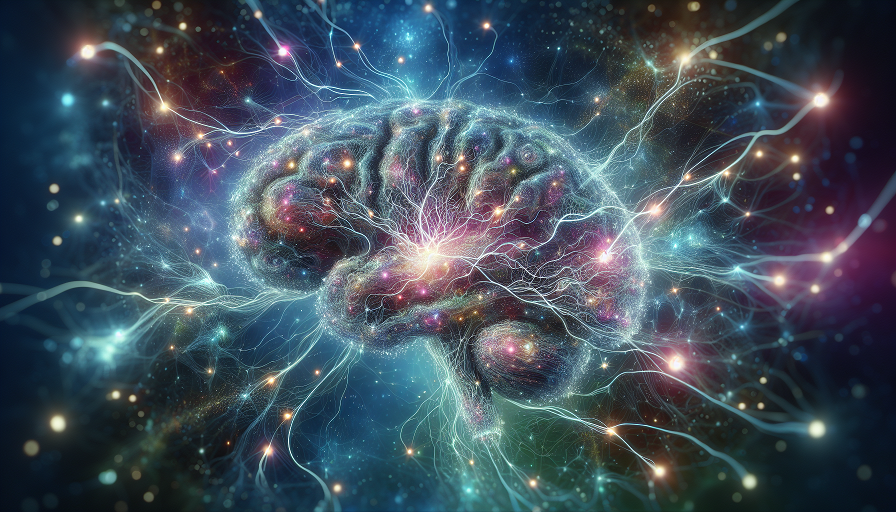
To keep your brain sharp after 50, focus on regular mental stimulation, daily movement, quality sleep, a brain-healthy diet, and nootropics that support memory, neuroprotection, and long-term cognitive function.
As we age, it’s normal to experience some changes in memory, processing speed, or mental clarity. But cognitive decline is not inevitable. The brain remains capable of growth and adaptation well into later life-especially when you support it with the right habits and nutrients.
By making a few targeted lifestyle changes and incorporating nootropics that promote brain resilience, you can stay mentally sharp, focused, and alert well beyond 50. The key is to protect the brain’s structure, support neurotransmitter balance, and stimulate neural activity regularly.
Contents
Why Cognitive Function Changes with Age
After age 50, the brain begins to undergo natural changes:
- Reduced neurotransmitter levels – such as dopamine and acetylcholine, which affect motivation and memory
- Decreased neuroplasticity – slowing learning and adaptability
- Increased oxidative stress – damaging neurons and impairing signaling
- Lower cerebral blood flow – which reduces delivery of oxygen and nutrients to the brain
These changes can lead to forgetfulness, slower recall, and difficulty concentrating. But many of these effects are influenced by lifestyle-and that means they can be managed or improved.
Strategies to Keep Your Brain Sharp After 50
1. Stay Mentally Active
Challenging your brain with new tasks helps keep it strong. Learn a new language, play an instrument, do logic puzzles, or take up a new hobby. These activities stimulate neuroplasticity and create new neural pathways.
2. Prioritize Physical Activity
Exercise boosts blood flow to the brain, increases BDNF (Brain-Derived Neurotrophic Factor), and supports memory and executive function. Aim for at least 150 minutes per week of moderate aerobic activity, plus strength training to support circulation and balance.
3. Improve Sleep Quality
Sleep is essential for memory consolidation and mental energy. As we age, sleep patterns may shift, but maintaining 7–9 hours of quality sleep is critical for brain health. A cool, dark room and a regular bedtime routine can help improve sleep efficiency.
4. Eat a Brain-Healthy Diet
The MIND Diet-a hybrid of the Mediterranean and DASH diets-is linked to slower cognitive decline. Prioritize:
- Leafy greens, berries, and colorful vegetables
- Omega-3-rich foods like salmon, walnuts, and flaxseeds
- Whole grains, legumes, and olive oil
Avoid processed foods, trans fats, and added sugars, which promote inflammation and oxidative stress in the brain.
5. Manage Stress and Social Isolation
Chronic stress and loneliness are both linked to faster cognitive decline. Stay socially active, engage in group activities, and practice stress-reducing techniques like mindfulness, deep breathing, or tai chi.
Nootropics That Support Brain Health After 50
Certain nootropic supplements can help offset age-related changes in the brain and support long-term cognitive performance. Mind Lab Pro includes ingredients that are particularly well-suited for older adults seeking to stay sharp:
- Citicoline (Cognizin®): Supports brain cell membrane repair and acetylcholine production, essential for memory, focus, and learning. It also enhances brain energy metabolism.
- Lion’s Mane Mushroom: Stimulates Nerve Growth Factor (NGF), promoting neurogenesis and protecting against age-related cognitive decline. It helps maintain memory and mental clarity as you age.
- Bacopa Monnieri: Improves memory retention and cognitive processing. Its antioxidant properties protect neurons from oxidative damage, which becomes more important with age.
- Rhodiola Rosea: Reduces mental fatigue and improves resilience to stress-a major factor in cognitive aging.
- L-Theanine: Promotes calm, focused alertness without sedation or stimulation. Helpful for older adults managing anxiety or sleep difficulties that affect cognition.
These ingredients work together to enhance memory, protect neurons, and support long-term mental agility. Unlike stimulants, they offer sustainable support that aligns with the brain’s natural rhythms and aging process.
Staying mentally sharp after 50 isn’t just possible-it’s a realistic goal with the right approach. By stimulating your brain, caring for your body, managing stress, and using high-quality nootropics, you can preserve and even improve cognitive function as you age. Your brain wants to stay active and engaged-your job is to give it the tools to do so.

